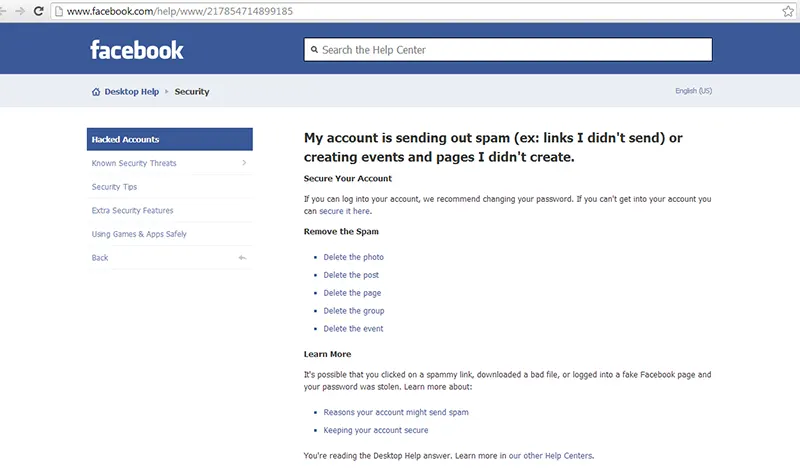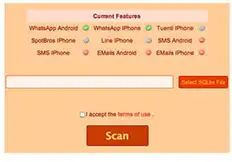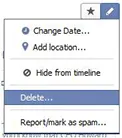Beware! You can be a Victim of Facebook Spam Messages!
Is Your Facebook Account Sending Spam Messages?

Samantha got a call from her friend Kristen who told her that she got a message from Samantha’s FB account and it contained a spam link. Soon Samantha realized that Kristen was not the only one who was getting this spam message. Similar thing happened to many users and many queries were asked in Facebook help section.
If you are facing similar situation then the first thing you need to do is to understand what exactly happened and from there you can stop it from happening, clean up your account and avoid it in the future. This article will help you understand the different reasons your account can start posting unwanted spam.

From leaked video tapes, free gift vouchers and bonus Facebook features, to dieting supplements, trashy videos and free games consoles, these spam links assert to provide all sorts of fake stuff, and can lead to a variety of other different scams.
And it is not always because of “hackers” or “viruses” as spread by people. It can be because of your ignorance a=or may be you’ve fallen for a social designing trick.
My Facebook Keeps Sending Spam Unknowingly!
Are you searching for reasons your friends are receiving spam messages and spam links from your account? Then you are at right place. Here we enlist the possible reasons why your Facebook account is posting spam messages and links, and how to stop it.
Due to Installation of Rogue Facebook Application
Pesky Facebook applications can make your Facebook account do plenty of unwelcome and annoying activity, and this often means posting “on your behalf”. Fortunately it is easy to determine if a rogue Facebook application is responsible for the spam messages made from your account because the Facebook application prints its name on the offending spam messages.

Post created by an App called “Exclusive”
You see, the image on the left was the result of a Facebook application, and you can see that the message was posted “via Exclusive” meaning it was posted by an App called “Exclusive”. The solution is simple – remove the offending Facebook application. To avoid such kind of spam you need to do a simple thing and that is in future install on trusted Facebook applications. Simple it that!
Due to Installation of Rogue Browser Extension
Browser extensions are like small programs that can make your Internet browser extra functional. In the case of Facebook spamming, a rogue browser extension can allow your browser to make posts from your Facebook account without your permission. That is obviously not a good thing. Browser extensions are usually installed by many users, especially unsuspecting victims thinking they’re installing some improved feature of the browser.
Your Internet browser always asks permission from you before it installs an extension, and users usually allow the extension to install without even knowing what it is and without realizing what can be the consequences.
To avoid this scam remember never to install browser extensions that you do not trust. Your Internet browser will always confirm if you want to install an extension. If you fell skeptical about it click “NO”.

Due to Pasting Wrong Code on Address Bar
We often copy unknown code to the web address bar by doing this you may probably bypass Facebook’s security measures, which can result in you unknowingly spamming your friends with messages and links, or worse. Spammers trick you into copying and pasting damaging code into their web address bar, often with combination of button pressing (involving Ctrl + V).
Not only this copying code from the web address bar and pasting it into a webpage is equally dangerous as it can also allow a spammer to send messages from your Facebook account. Spammers trick victims by pretending they are pasting an “access code” [or similar] into a webpage to unlock something, but actually the Facebook user is giving up their ‘authentication token’, thus handing control of their Facebook session to a spammer. Both of these tactics allow a spammer to hijack your Facebook session, meaning to stop the attack you need to log out of Facebook straight away. To avoid this scam you should remember never to copy and paste code to and/or from your browser’s web address bar.
Whatever The Reason, Don’t Forget to Clean Up Your Account

Well it’s late when you come to know that you are unknowingly spamming your friends on Facebook, but to save your friend from doing the same on Facebook you should always remove offending posts before your friends click on them and fall for the scam. Such posts can be deleted by clicking on the option delete on your timeline provided on the pencil icon at the top right.

